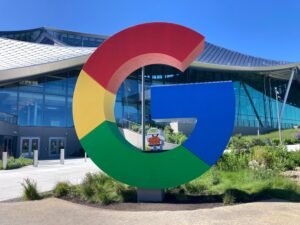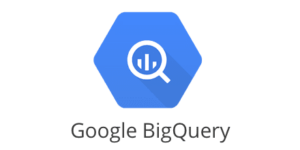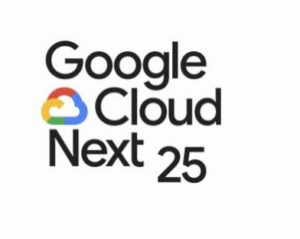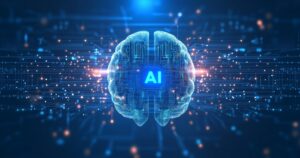
(Michael Vi/Shutterstock)
Google Cloud made a slew of analytics-related bulletins at its Subsequent 2025 convention this week, together with a variety of enhancements to BigQuery, its flagship database for analytics. BigDATAwire caught up with Yasmeen Ahmad, managing director of information analytics, to get the inside track.
Requested to establish three primary areas of innovation in BigQuery and associated merchandise, Ahmad pointed to the brand new brokers that automated knowledge science, engineering, and analytics work; the brand new knowledge processing engines in BigQuery; and advances in Google Cloud’s knowledge basis and its knowledge cloth.
Whereas the work is finished by separate groups, there’s loads of performance that crosses over into different areas, Ahmad added. “Now we have loads of gifted engineering groups all engaged on wonderful issues in parallel,” she stated. “We simply had so many wonderful improvements over the previous 12 months we’ve been engaged on culminating to Subsequent.”
New AI Brokers
As we beforehand reported, Google Cloud is devoting considerably sources to serving to its prospects construct and handle AI brokers. That works consists of constructing a brand new Agent Improvement Equipment (ADK), creating a brand new Agent-to-Agent (A2A) communication protocol that completes Anthropic’s Mannequin Context Protocol (MCP), and the creation of an Agent Backyard, amongst (many) different improvements.
The corporate can be embedding pre-built AI brokers into its personal software program companies, together with BigQuery. There are new specialised brokers for knowledge engineering and knowledge science duties; new brokers for constructing knowledge pipelines; and new brokers for performing knowledge prep duties, comparable to knowledge transformation, knowledge enrichment, and anomaly detection.
“That’s a recreation changer for the human knowledge people who find themselves engaged on knowledge,” Ahmad stated. “We actually imagine these brokers are going to remodel the way in which they work with knowledge.”
The brokers are powered by Gemini, Google’s flagship basis mannequin. The brokers are making recommendations to the human knowledge analysts, knowledge scientists, and knowledge engineers primarily based partly on data collected via a brand new BigQuery information engine that Google Cloud has constructed, which is presently in preview.
“The information engine makes use of metadata, semantics, utilization logs, and knowledge from the catalog to know enterprise context, to know how knowledge objects are associated,” Ahmad stated. “How are folks utilizing the information? How are completely different engines getting used over that knowledge? And the information that it builds from that’s what it then feeds these knowledge brokers.”
Google Cloud additionally unveiled a brand new conversational analytics agent performance in Looker, its BI and analytics. This new agent will enable Looker customers to work together with knowledge utilizing pure language. The brand new AI-powered pure language features in Looker may also enhance the accuracy of Looker’s modeling language, LookML, which features as Google’s semantic layer, by as much as two-thirds, the corporate says.
“As customers reference enterprise phrases like ‘income’ or ‘segments,’ the agent is aware of precisely what you imply and might calculate metrics in real-time, making certain it delivers correct, related, and trusted outcomes,” Ahmad wrote in a weblog submit.
New BigQuery Engines
Along with the brand new information engine, Google Cloud introduced that it’s growing a brand new AI question engine for BigQuery. The BigQuery AI question engine will allow queries to basis fashions like Gemini to happen concurrently with conventional SQL queries to the information warehouse.
Querying structured and unstructured on the similar time will open a bunch of recent analytic and knowledge science use instances, Google Cloud says, together with constructing richer options for fashions, performing nuanced segmentation, and uncovering hard-to-reach insights.
“An information scientist can now ask questions like: ‘Which merchandise in our stock are primarily manufactured in nations with rising economies?’ The inspiration mannequin inherently is aware of which nations are thought-about rising economies,” Ahmad wrote.
BigQuery pocket book, a knowledge science pocket book different to Jupyter, has additionally been enhanced with AI. Google Cloud is introducing “clever SQL cells” that perceive the context of consumers’ knowledge and provide the information scientist recommendations as they write code. It’s additionally leveraging AI to allow new exploratory evaluation and visualization capabilities.
Google Cloud has additionally launched a brand new serverless Apache Spark engine in BigQuery. Google Cloud has supported conventional Spark environments for years as a part of Dataproc, which additionally consists of Hadoop, Flink, Presto, and plenty of different engines. At the moment in preview and being examined by prospects, the serverless Spark providing is getting higher, Ahmad stated.
“We introduced this week we’ve made three-fold efficiency enchancment in our serverless Spark providing,” she stated. “So we’re actually wanting ahead to getting this now into common availability, as a result of we imagine that efficiency goes to be market-leading efficiency.”
And whereas it’s not a BigQuery announcement, Google Cloud additionally introduced the overall availability of Google Cloud for Apache Kafka. Whereas the corporate additionally presents its PubSub service for streaming knowledge, some prospects simply need Kafka, Ahmad stated.
“Now we have many customers utilizing Google’s first occasion companies, however once more, we wish that selection and optionality relying on the place our buyer can be coming from,” she stated. “As we additionally embrace all of these prospects migrating to Google, we wish to embrace what they’ve already constructed with current investments and constructed pipelines and so forth.”
Information Basis Enhancements
Like the primary two areas, the third massive space of enchancment within the Google Cloud analytics surroundings–enhancements to the information basis (the information cloth) and knowledge governance–touches on different areas too.
As an illustration, simply because the AI question engine in BigQuery lets customers use Gemini towards their knowledge, they will additionally now handle unstructured knowledge in BigQuery via the brand new assist for multimodal tables (structured and unstructured knowledge).
Google Cloud is rolling out a preview of a brand new characteristic known as BigQuery governance that may present a single, unified view for knowledge stewards and professionals to deal with discovery, classification, curation, high quality, utilization, and sharing. It consists of automated knowledge cataloging (GA) in addition to new experimental characteristic, computerized metadata era.
“Now we have an even bigger imaginative and prescient round governance,” Ahmad stated within the interview. “Quite a lot of the work round catalogs, metadata, semantics, and many others. has been very human and handbook pushed traditionally. You’ve bought to go arrange a catalog. You’ve bought to go arrange metadata, enterprise glossaries–all of these issues.”
Google Cloud is making an enormous wager that AI may also help to automate a lot of that knowledge governance work in its knowledge cloth. “We showcased demos of automated semantic era at scale, cataloging over goal or over unstructured knowledge,” Ahmad stated. “So we truly see this factor as an clever, dwelling, respiration factor that’s dynamic and really powering the entire AI ecosystem round brokers and any form of agentic functionality.”
As if that wasn’t sufficient, Google Cloud can be transferring ahead with its knowledge lakehouse structure. The corporate introduced a preview of BigQuery tables for Apache Iceberg, which can give prospects the advantages of the open desk format, comparable to enabling a variety of question engines to entry the identical desk with out worry of conflicts or knowledge contamination.
Since Google Cloud first introduced Iceberg into its surroundings six months in the past, adoption has tripled, Ahmad stated. In reality, she added, Google Cloud’s assist for Iceberg is market-leading by way of efficiency and capabilities.
As an illustration, prospects can depend on Google to control their Iceberg tables, she stated. They will stream knowledge straight into Iceberg, or extract AI-powered insights from Iceberg knowledge. Google can again up prospects’ Ice berg environments,
“In reality, many purchasers, once they’ve truly checked out our Iceberg managed service, they’re saying, ‘Hey you’re not simply supporting it. You’re accelerating Iceberg in a means that that’s only a dream come true,” Ahmad stated. “So truly Deutsche Telekom on the panel I did yesterday with them stated Iceberg has been magical for us in Google Cloud as a result of we really are embracing it, as a result of we predict it’s so vital for patrons for that selection and adaptability they’re in search of.”
Associated Gadgets:
Google Cloud Preps for Agentic AI Period with ‘Ironwood’ TPU, New Fashions and Software program
Google Cloud Fleshes Out its Databases at Subsequent 2025, with an Eye to AI
Google Revs Cloud Databases, Provides Extra GenAI to the Combine




